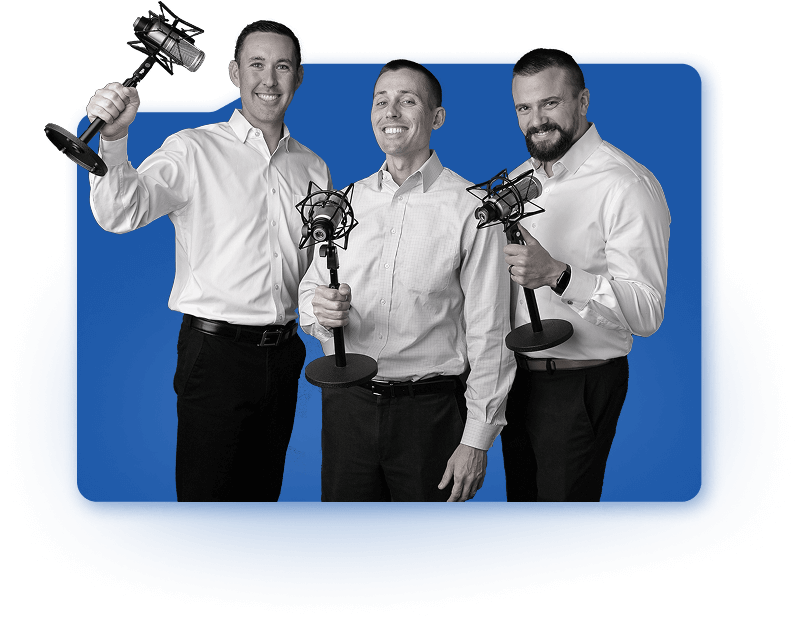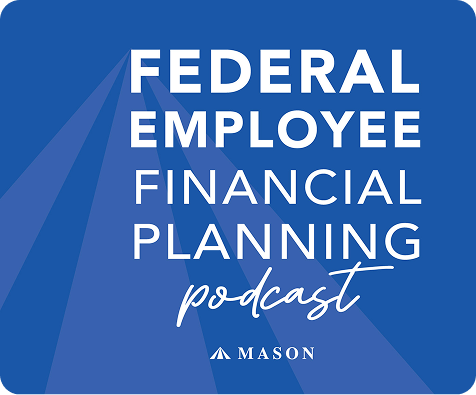Mason & Associates
Fee-Only Financial Planning and Tax
Planning for Federal Employees
Host of the Federal Employee
Financial Planning Podcast

Who We Help
We place clients’ interests first and empower them to live their best life
Our financial advisors specialize in providing financial planning advice to federal employees who are covered by the Federal Employee Retirement System (FERS) and Civil Service Retirement System (CSRS).
Not a federal employee? No problem! We serve a variety of clients who have no ties to the federal government other than the taxes they pay.
Our Clients:
- Are in or near retirement
- Have $1 Million or more saved in investments
- Want to outsource the thinking but not the decision making
- Want to stop dealing with the “resource hotline” and speak to someone who cares

Schedule an Introductory Call
We are more than just “money guys.” Collectively, we have 100 years of experience helping
clients navigate both the best and the most challenging moments in life.
We’re able to share our own life experiences as well as experiences from serving clients to
meet you where you are in your financial plan.
About Mason & Associates
A team you can call with the good news and the bad
As an independent, fee-only firm, our mission is to provide unique, transparent, and comprehensive financial planning advice that places your interests first and empowers you to live your best life.
- Experience ongoing financial planning
and tax planning - Maximize federal benefits
- Turn to us when life happens

Our Comprehensive Services
We provide financial planning advice and support to clients and
their families nationwide.

Retirement planning

Estate planning

Tax planning

Investment management

Mason & Associates Recognized by Inc. 5000
Our firm is proud to be one of America’s fastest-growing private companies, recognized with the Inc. 5000 award. We’re incredibly proud of our team, and grateful for our wonderful clients who helped us make this happen.
Disclosures: Rating given in August 2025 by Inc in consideration for the 2024 calendar year. Per Inc.’s methodology, an application fee was due to assist with processing applicants. Mason & Associates does not receive compensation by or for this rating.
We’re Financial Planners First, and Educators Second

John Mason, CFP®, Michael Mason, CFP®, CLU®, ChFC®, Tommy Blackburn, CFP®, CPA, PFS, and Ben Raikes, CFP®, EA, host the Federal Employee Financial Planning Podcast. The episodes discuss a wide range of federal benefits, tax and financial planning strategies, and at times features guests from other areas of the financial industry.
-
Featured Podcast Episode
FEFP: Fork in the Road: Understanding Your Federal Retirement Options (EP86)
Listen to the Episode: FEFP: Fork in the Road: Understanding Your Federal Retirement Options (EP86)Do you know how the Deferred Resignation Program, VERA, or DSR could impact your federal employee career…
-
Latest Podcast Episode
FEFP: The Mason & Associates New Client Experience for Federal Employees (EP110)
Listen to the Episode: FEFP: The Mason & Associates New Client Experience for Federal Employees (EP110)Ever wondered what actually happens after you book an intro call with Mason & Associates? In this updated…
-
Featured YouTube Video
Don’t Let the Government Control Your Tax Plan! Take Action Today!
Watch the Video: Don’t Let the Government Control Your Tax Plan! Take Action Today!John Mason, CFP®, discusses the importance of planning TODAY to control your tax bill in the future.…
Stay Connected!
Sign up to receive clear, actionable insights and updates directly in your inbox. We’re ready to meet you where you are…even if that’s only periodic email updates written by us for you.



